ASO vs. UCI: Condemned to repeat history?
There is a very sad reality to the current political climate of international cycling – it's all...
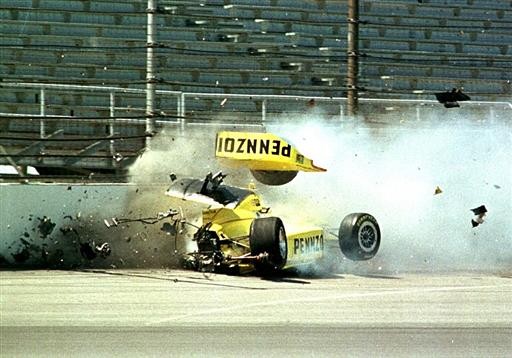
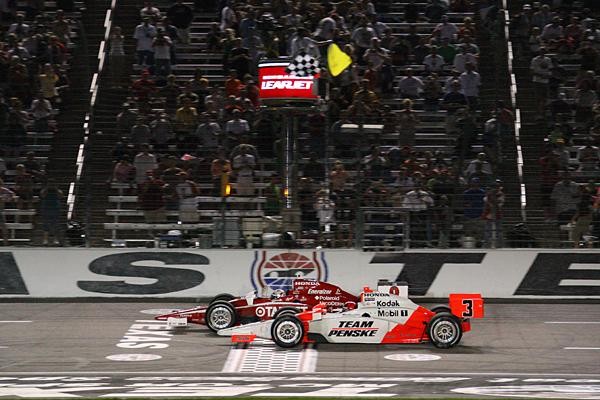
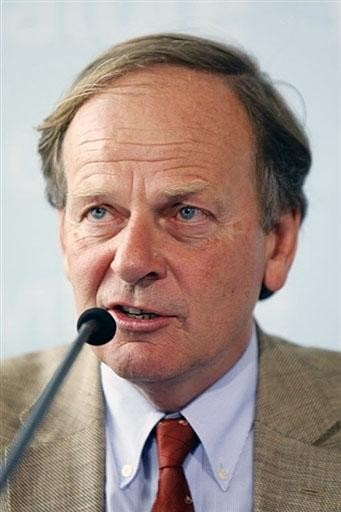
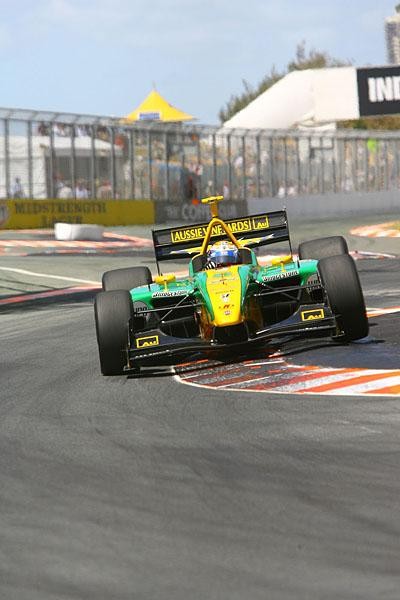



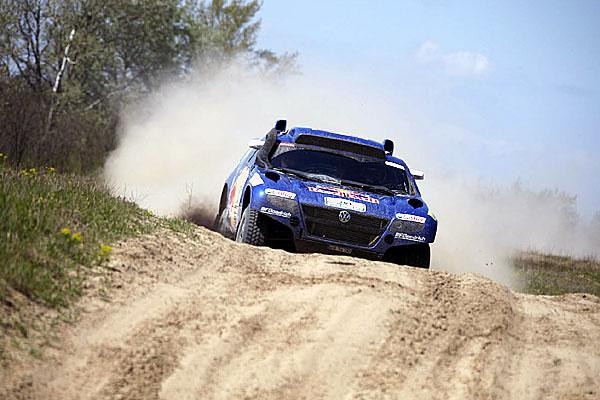


News feature, July 4, 2008
ASO vs. UCI: Condemned to repeat history?
As the Tour de France prepares to make its depart under the governance of the French Federation in defiance of the UCI's rules, the sport's political problems are as far as ever from being solved. Cyclingnews' former motorsport journalist Greg Johnson finds some parallels in the world of auto racing that can serve as a warning to cycling's power brokers.
There is a very sad reality to the current political climate of international cycling – it's all been done before. I'm not talking about the barrage of threats in the UCI Vs. Grand Tours battle which is annually followed by an 11th hour truce before the Tour de France starts each July. No, this battle – from beginning through to resolution – has been fought within other sporting frameworks for many years.
Founded in 1900, cycling's international governing body - Union Cycliste International – is by no means a young organisation. It has lived through each and every one of these battles, yet shortsightedness has seemingly prevented it and Grand Tour organiser Amaury Sport Organisation from learning from others' experiences.
At the heart of cycling's political bickering is money. Television rights from events such as ASO's Tour de France, and its newly acquired stake in the Vuelta a España, is a multi-billion dollar industry. While UCI's claim of wanting to protect the rights of those employed within the industry is true to an extent, its desire to gain a share of the financial windfall of television rights has long been one of the sticking points in negotiations with the sport's biggest promoter.
If we look outside of our two wheel, pedal powered sport to the four wheeled world of motor racing for a moment, we will find some of the strongest parallels with the UCI/ASO situation in the world of sport: Should cycling follow the path of the first, it could suffer a steep decline, while the second path could yield a much more positive outcome.
Get The Leadout Newsletter
The latest race content, interviews, features, reviews and expert buying guides, direct to your inbox!
CART vs. IRL: Rival series doomed to fail
The first comparison comes from the United States of America, where the seemingly impregnable fort of open wheeler racing has belittled itself due to conflict. The split between governing organisation Championship Auto Racing Teams (CART) and Indianapolis Speedway owner Tony George, started a 12-year feud that crippled open wheeler racing; at the same time, NASCAR sped through to claim the limelight and develop one of the world's largest sporting economies in the process.
In the mid-1990's, CART racing was struggling to keep up with the emergent NASCAR circuit which was stealing much if its thunder. CART owners got into a dispute with Tony George, who owned the Indianapolis Motor Speedway and the discipline's equivalent of the Tour de France: the Indianapolis 500. George wanted to make changes to the sport to compete with NASCAR, but protests from the league led him to form his own, which he dubbed the Indy Racing League (IRL). IRL later became IndyCar, while CART became ChampCar but though the names changed, the battle did not end.
Over the next decade, the competing race series pitted drivers and races against each other in the battle for sponsorship and advertisers. While sometimes competition can be healthy, in this instance it was nearly deadly. Attendance by fans declined, drivers left for other circuits like NASCAR and Formula 1, and CART was plunged into bankrupcy only to be bought out and revived as Champ Car.
This is where the parallels with cycling start to ring warning bells: The UCI seems intent on pursuing the ProTour concept without the Grand Tours or most of the Monuments of cycling like Paris-Roubaix, instead focusing its efforts on globalization. Its pricey license will require teams to compete in non-traditional cycling countries like Russia, but the pressure to race a full non-ProTour European schedule, complete with three Grand Tours, will still be high.
The problem is, the UCI and ASO may create rival circuits, but they aren't increasing the number of teams or riders which can only mean that the existing squads will be stretched thin across the globe and will be forced to choose. Already, Cofidis chose to opt out of the ProTour - and presumably more teams will follow.
A similar dilemma, further complicated by the competition from NASCAR, nearly collapsed open wheel racing in the US. So what did the IRL and Champ Car do? They merged! After splitting in 1995, the two came back together in February, 2008, after George made an irresistable offer to ChampCar teams this January. IndyCar stood victorious, albeit a shadow of its former self, while the CART/ChampCar organisation was placed into administration for a second, and final, time.
Compromise and the sacrifice of a multi-million dollar investment was, in the end, the only solution. While it doesn't – yet - have a rival such as NASCAR waiting to steal its thunder, the sport of cycling will also need compromise and sacrifice to keep from suffering the same decline.
F1: Power in unity
Unity is the key. Contract negotiations of any form are stronger with it, as well as the volume in numbers that comes with it. You can be assured that a unified series presented by the UCI and ASO will be a heavier hitter in contract negotiations – be they television or sponsorship/advertising discussions – than two individual series.
The logic is simple, especially in advertising discussions. In a world of post-cigarette advertising dollars the competition for sponsorship dollars within sport's spectrum is fierce. The last thing either organisation needs is to fight one another for the same advertising dollars it also has to fight an endless flow of other sports for.
It's this approach that has seen Bernie Ecclestone take the Formula One World Championship to heights once only dreamed of. Upon joining the Formula One Constructors Association (FOCA) in the early 1970s, Ecclestone delivered an ultimatum to the equivalent of cycling's race promoters, the circuit owners: surrender trackside advertising or be out of the championship.
Ecclestone convinced circuit owners that hunting as one group would provide the best financial return for all and the organization, which paved way for now commercial rights holder Formula One Group, to rise to prominence. The prominence didn't simply arrive on the doorstep one day, as FOCA did clash with the sport's governing body on numerous occasions.
Just like the ASO and UCI, FOCA went to war with the International Automobile Federation (FIA, then FISA) - auto racing's governing body, for a number of reasons, and even launched a failed attempt to create its own rival championship. The situation descended into boycotts and protests until finally Goodyear, a major sponsor, threatened to withdraw entirely from Formula One, an event which would have been commercially disastrous for the sport.
F1's salvation is cycling's demise
Ironically, F1 solved its issues when Ecclestone, team managers, and FISA representatives inked what was known as the Concorde Agreement - a document which likely inspired the ProTour concept in the first place.
The Concorde Agreement provided for revenue sharing, regulatory stability, and more importantly guaranteed that all the top teams would appear in all of the F1 races. It was a concept that helped to boost the development of F1 into the economic giant it is today, and is at the heart of the ProTour. So why did the idea not work for cycling?
In F1, there is a commercial rights holder appointed to manage the sport's top series - the Formula One Group. For the ProTour concept to work, the UCI would have to relinquish any aspirations of being a commercial rights manager itself. The Swiss organisation would have to accept a role – as it was always destined for in the pre-commercialised world – as a body which sets and governs sporting regulations. That's it.
Instead, as a stakeholder in the top-rung series, UCI would be the benefactor of the financial return on a product – or brand - it licensed to a commercial rights holder. That commercial rights holder would almost certainly have to be ASO, which would also be a major stake holder.
The ASO's president Patrice Clerc has said that the Formula One concept could not work in cycling, especially if the UCI is behind it. "The UCI can't be race organiser and make up the rules at the same time. That is not possible, and there lies the whole problem since the beginning of the ProTour."
ASO has placed itself well for this role already via its marketing association with the Tour of California and its either part of full ownership of the Vuelta and Tour. It's also the only way the Tour will be brought into the fray, plus there's that little fact that it's remarkably good at what it does.
The difference is...
There is another resounding problem with the situation cycling faces when compared to motorsport. When Ecclestone took hold of Formula 1's commercial fate, individual promoters were struggling to captialise on the product it had – especially when it came to television rights. This is of significant difference to cycling's positioning, where ASO is having little trouble selling its product at a tidy rate – another reason why any unified front needs to have heavy ASO involvement to work.
Despite the smoke and mirrors, at the centre of this battle - and what's preventing a resolution – revolves around money. Assets are the power cards in this war, and that is another area where ASO has the upper hand.
ASO's cards include some of the sport's most famed races like the Tour, Paris-Nice, Paris-Roubaix, La Flèche Wallonne and Liège-Bastogne-Liège, as well as its holding in the Vuelta. In the UCI's camp the power card is its position as gatekeeper to the Olympic Games, something ChampCar – given motor racing isn't an Olympic sport - didn't have the benefit of. Despite the importance of being an Olympic Champion to riders, it's a card with little value at the negotiating table.
The greatest problem with the UCI's power card is it needs to demonstrate a willingness to use it in order to show its worth. However such an attempt could have dire consequences. If the UCI moved to sanction riders from contesting a break-away series, with omission from the Olympic Games as the punishment, national bodies would be up in arms that their top riders couldn't start the Olympic Games.
The threat of a rival international governing body would automatically be heightened, with a long list of nations ready to join which could eventually see a new gatekeeper appointed. Because of the potential ramifications, it's unlikely the situation will ever escalate to such a point.
ASO's move to have its events operate under the French Cycling Federation's governance has been marketed by the UCI as a move by ASO to create a new international governing body. The notion, however, has a flaw. Why would a company which makes billions from events management want to get involved in a political market that has little – if any - return on investment? Instead, all ASO seeks is someone who will provide it with a rule book to run its events by – without trying to influence the direction of its assets or take an unreasonable slice of its cake.
Of course, UCI could attempt to re-create the Tour's success. CART pursued a similar path with its creation of the U.S. 500 to rival the history-rich Indianapolis 500 after the series split. So ambitious, or perhaps naïve, were the organisers that the first U.S. 500 was run on the same day as the Indianapolis 500. It was a flop. While the name was retained by another event on the calendar, the original head-to-head with the discipline's great race never took place again.
The U.S. 500 disaster was the first sign CART couldn't win the war, yet it would take more than a decade before the inevitable would happen. And even then, it only happened through sacrifice.
There will come a time when – like any war before it – that between ASO and the UCI must end. The sport requires unity and recent history has shown it will only come at the hand of sacrifice. That leaves the question of who will bow down and what the resolution will be.
While ASO has little reason to nurture the bigger picture of world cycling, coming to an agreement to move forward together with the UCI, rather than against it, won't do anything to hurt the company's reputation in the eyes of those who count most. The fans.
A deal needs to be brokered. Whether ASO relents its position for the sake of harmony within the top echelons of the sport or UCI decides it's better to be on the boat then missing out altogether, remains to be seen.
Do you think the UCI can save the ProTour? Will the sport suffer from the political battles? Send your thoughts to letters@cyclingnews.com and we'll publish the best of them!
Cyclingnews' recent coverage of the ProTour-Grand Tours split
October 4, 2008 - New ASO chief to maintain values
September 26, 2008 - UCI declares peace, appoints new VP
August 30, 2008 - UCI re-signs five ProTour races
August 22, 2008 - ProTour: Bouncing back or lame duck?
August 19, 2008 - Stapleton analyses 'world calendar'
August 18, 2008 - Feedback on 'world calendar'
August 18, 2008 - UCI announces 'world calendar'
Cyclingnews' complete coverage of the ProTour-Grand Tours split